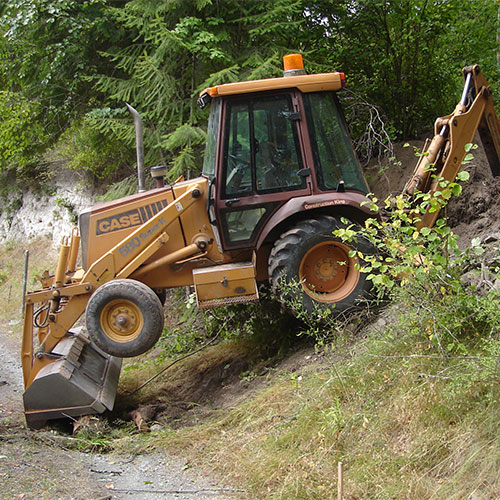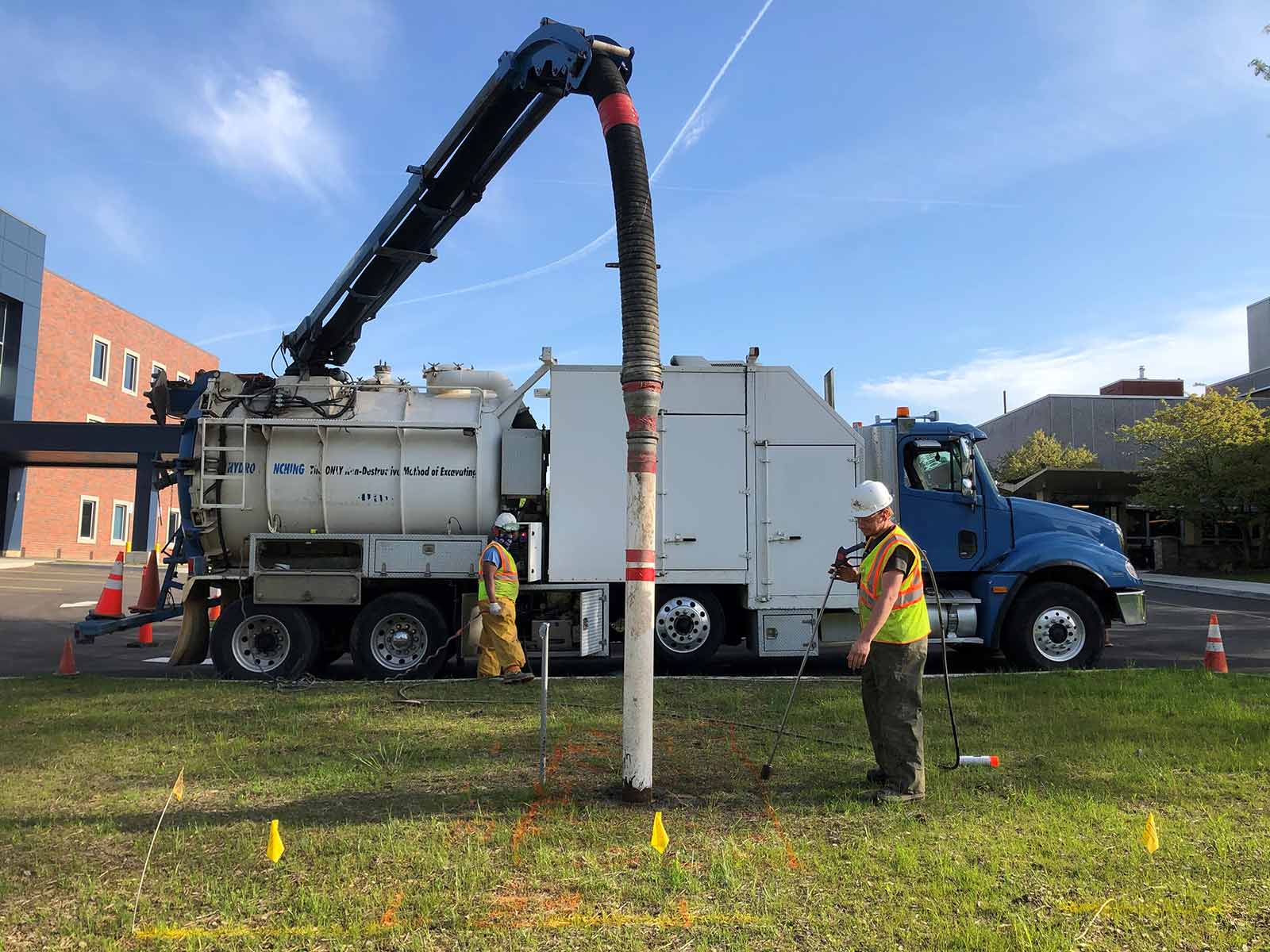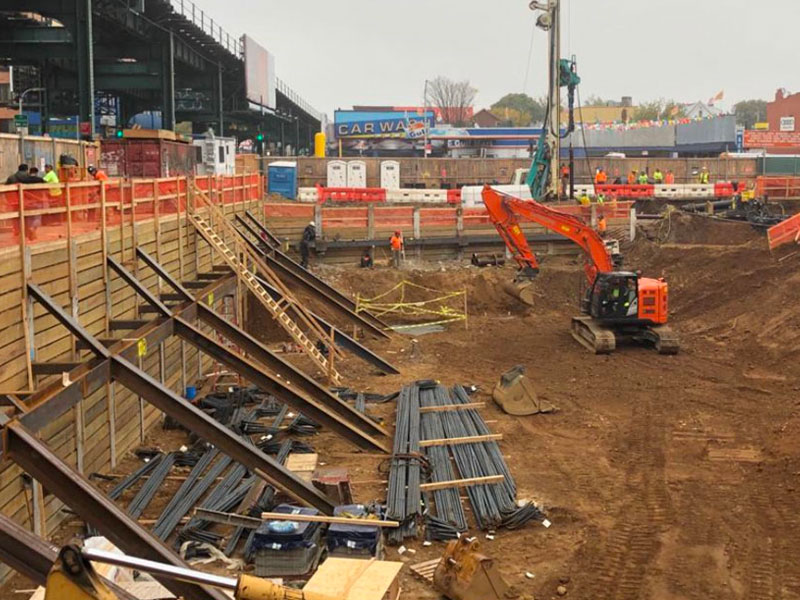Comprehensive Excavation Strategies: Grasping the Principles for Success
The mindful planning, specific implementation, and precise interest to information required in excavation projects demand a comprehensive approach that includes different basic elements. The real proficiency exists not merely in understanding these principles yet in flawlessly incorporating them to navigate the intricacies of excavation tasks with finesse.
Comprehending Excavation Project Planning

The initial stage of any kind of excavation job is the preparation phase, where crucial choices are made that can substantially influence the end result of the task. Understanding the project timeline, extent, and budget constraints is essential for producing a detailed excavation strategy that makes sure the job's success.
One trick facet of excavation job preparation is the advancement of a detailed timeline that outlines the sequence of due dates, tasks, and landmarks. This timeline works as a roadmap for the project group, enabling them to track progression and make needed modifications to make certain the project remains on schedule. Additionally, a distinct spending plan that accounts for all expenses, including tools service, labor costs, and materials, is crucial for avoiding cost overruns and hold-ups. By very carefully taking into consideration all these variables throughout the preparation stage, excavation projects can be carried out successfully and effectively, leading to successful end results.
Soil Analysis and Site Evaluation
Carrying out complete soil analysis and site assessment is a vital step in the prep work phase of any type of excavation project. Dirt analysis entails establishing the make-up, framework, and residential properties of the dirt at the excavation site. This information is essential for understanding the dirt's bearing ability, wetness material, and possibility for disintegration, which are essential factors in determining the excavation approaches and devices needed for the job.
Site examination surpasses soil analysis and incorporates a wider assessment of the general site problems. This examination consists of identifying any type of possible threats, such as below ground utilities, environmental concerns, or unsteady surface, that might influence the excavation procedure. By extensively examining the site, project supervisors can create efficient excavation approaches that prioritize safety, effectiveness, and environmental management.
Using innovative innovations like ground-penetrating radar, soil tasting, and drone studies can enhance the precision and performance of soil evaluation and website evaluation. Investing time and resources in these preliminary steps can eventually save time and prevent costly delays or difficulties throughout the excavation procedure.
Devices Option and Application
Efficient excavation projects rely greatly on critical equipment option and usage to make sure optimum performance and productivity. Selecting the ideal equipment for the job is essential in making the most of performance and decreasing downtime. Variables such as the kind of soil, depth of excavation, and task extent play a considerable function in establishing the most ideal devices for the job handy.

In addition to choosing the appropriate equipment, correct usage is essential to job success. Operators must be trained to manage the tools safely and efficiently - septic ohio. Routine upkeep checks and timely repair work assist avoid failures and make sure constant performance throughout the task
Precaution and Regulations Conformity
In the realm of excavation tasks, focusing on security measures and compliance with laws is critical to making certain a legally audio and safe functional setting. Safety actions encompass a series of methods, consisting of carrying out thorough website assessments, applying proper signage and obstacles, and giving adequate security training for all workers involved in the excavation process. Adherence to guidelines, such as OSHA needs in the United States, guarantees that the excavation project fulfills the required standards to secure workers, bystanders, and the surrounding atmosphere.

Surveillance Progression and Adjusting Approaches
Just how can predict supervisors properly track the development of excavation projects and adapt their strategies as necessary to enhance results? Monitoring progression is crucial for making certain that excavation jobs stay on track and meet deadlines. Task managers can make use of numerous devices and methods to track development, such as everyday report card, regular website inspections, and advanced monitoring technologies like drones and GPS tracking systems. By continually checking the job's advancement, supervisors can identify any prospective hold-ups or problems early on and take aggressive procedures to resolve them.

Verdict
In conclusion, mastering the principles of detailed excavation techniques is important for the success of any task. By recognizing task planning, evaluating soil and site conditions, selecting ideal devices, complying with safety and security policies, and keeping an eye on development, job managers can make sure a smooth and effective excavation process. Applying these techniques will certainly bring about successful end results and reduce potential dangers or problems throughout the excavation task.
The initial stage of any kind of excavation job is the planning phase, where essential Go Here decisions are made that can significantly influence the end result of the project. Comprehending the task extent, budget plan, and timeline restraints is essential for developing an extensive excavation strategy that ensures the task's success.
Exactly how can predict managers properly track the advancement of excavation jobs and adapt their strategies as necessary to maximize results? By very closely keeping an eye on progress and being eager to adjust methods, project managers can improve the total success of excavation projects.
By comprehending job preparation, analyzing dirt and site conditions, selecting suitable devices, conforming with safety and security regulations, and keeping an eye on development, job supervisors can guarantee a efficient and smooth excavation process.